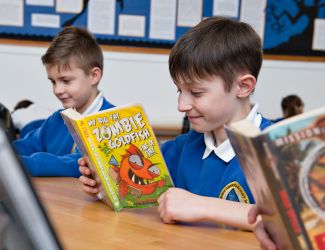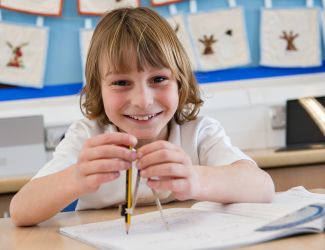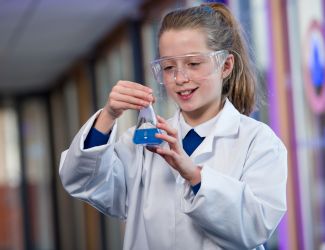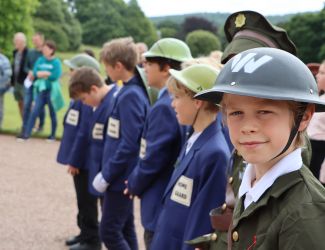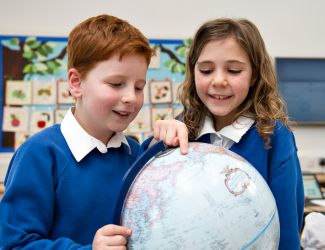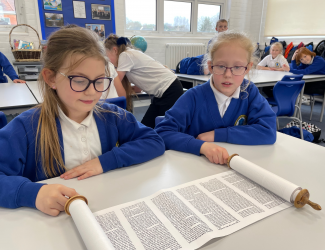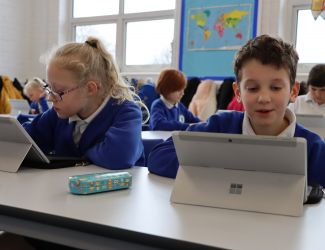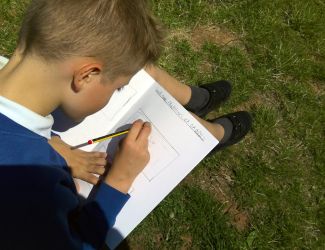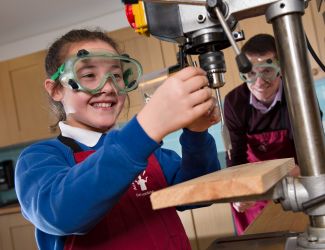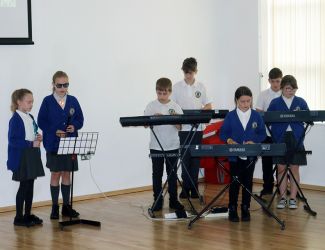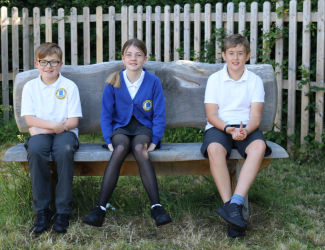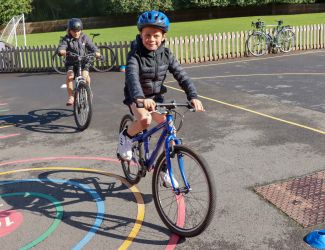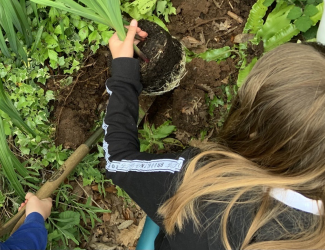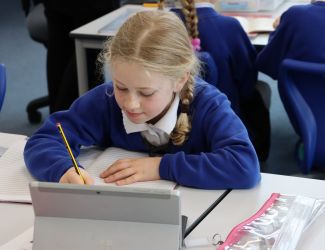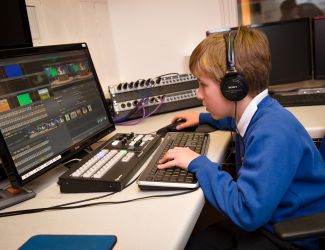Year 4 Science Curriculum
Pupils are taught about all three areas of science and are able to work independently and as part of a group. Whilst working, they will also use an abundance of resources to further cement their understanding of subjects. The use of videos, articles, images and practical experiments allow for all students to access the lesson successfully.
Knowledge
Biology – Animals including Humans
- Describe the simple functions of the basic parts of the digestive system in humans.
- Identify the different types of teeth in humans and their simple functions.
- Construct and interpret a variety of food chains, identifying producers, predators and prey.
Biology – Living Things and Their Habitats
- Recognise that living things can be grouped in a variety of ways.
- Explore and use classification keys to help group, identify and name a variety of living things in their local and wider environment.
- Recognise that environments can change and that this can sometimes pose dangers to living things.
Chemistry – States of Matter
- Compare and group materials together, according to whether they are solids, liquids or gases.
- Observe that some materials change state when they are heated or cooled, and measure or research the temperature at which this happens in degrees Celsius (°C).
- Identify the part played by evaporation and condensation in the water cycle and associate the rate of evaporation with temperature.
Physics – Electricity
- Identify common appliances that run on electricity.
- Construct a simple series circuit identifying and naming its basic parts and their purposes, including cells, wires, bulbs, switches and buzzers.
- Recognise that a switch opens and closes a circuit and associate this with whether or not a lamp lights in a simple series circuit.
- Recognise some common conductors and insulators, and associate metals with being good conductors.
Physics – Sound
- Identify how sounds are made, associating some of them with something vibrating.
- Recognise that vibrations from sounds travel through a medium to the ear.
- Find patterns between the pitch of a sound and features of the object that produced it.
- Find patterns between the volume of a sound and strength of the vibrations that produce it.
- Recognise that sounds get fainter as the distance from the sound source increases.
Working Scientifically
Plan
- Ask relevant questions and use different types of scientific enquiries to answer them
- Set up simple practical enquiries, comparative and fair tests
Do
- Make systematic and careful observations and where appropriate, taking accurate measurements using standard units, using a range of equipment, including thermometers and data loggers
- Gather, record, classify and present data in a variety of ways to help in answering questions
- Record findings using simple scientific language, drawings, labelled diagrams, keys, bar charts, and tables
Review
- Report on findings from enquiries, including oral and written explanations, displays or presentations of results and conclusions
- Identify differences, similarities or changes related to simple scientific ideas and processes
- Use straightforward scientific evidence to answer questions or to support their findings
- Use results to draw simple conclusions, make predictions for new values, suggest improvements and raise further questions
Investigation/Experiments
- Teeth Damage Investigation - Pupils will observe the effects of a variety of different liquids on the shell of an egg. The enamel mimicking the human tooth.
- Build your own Water Cycle - Pupils will make their own contained water cycle to observe the evaporation, condensation and precipitation process.
- Morse Code Machines - Pupils use their circuitry knowledge to develop morse code machines capable of sending secret messages.
- String Telephones - Pupils are once again challenged to send secret messages – can you send a message more swiftly through solid, liquid or gas?
- Kingfisher Field Study - In this Local Field Study led by the Kingfisher Organisation pupils will be asked to investigate an area of British Wildlife. Here pupils will consider the food chains living locally that are affected by this project title. Here pupils will look at classifying local wildlife and consider the environmental impact change can have on local community.

